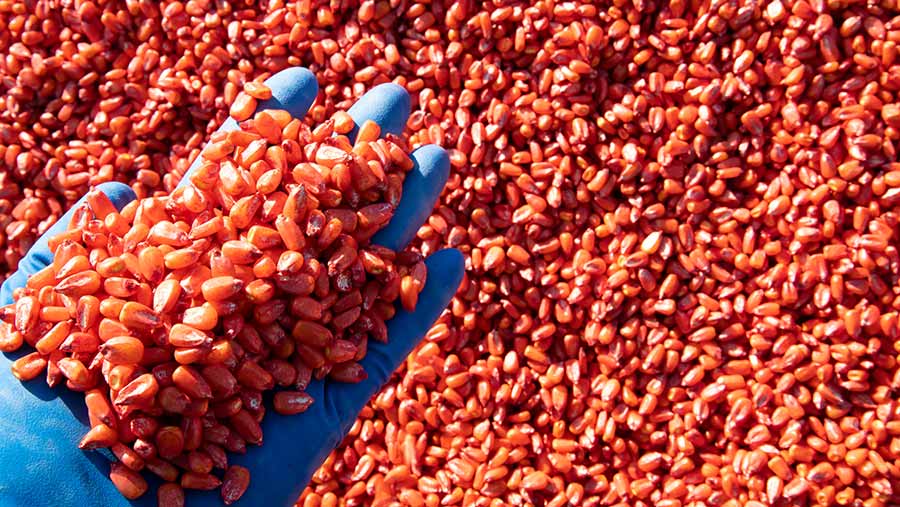Maize grower relief at emergency seed treatment ruling
 © Igor Bastrakov/Adobe Stock
© Igor Bastrakov/Adobe Stock British maize growers can breathe a sigh of relief that three European seed treatments have been given the green light for UK use next year.
UK regulators have granted emergency authorisations for:
- Korit – bird repellent
- Redigo M – fungicide
- Force ST – wireworm product.
This ends 11 months of frantic lobbying and negotiation by the Maize Growers Association (MGA) as the 1 January 2024 expiration date loomed for all three licences.
Following Brexit, all UK pesticides must be approved on the GB Pesticides Approvals Register.
See also: Options for harvesting maize in wet conditions
Each application for authorisation was sponsored by the MGA. Without these authorisations, use of the treatments would have become illegal.
Use of European seed in the UK is critical because commercial maize varieties are hybrids and the parental lines do not thrive in the UK climate, said Neil Groom, technical director at Grainseed.
All commercial maize seed for the UK is cleaned, sorted, treated and bagged in mainland Europe – mainly in France, as well as Germany and eastern Europe. It is imported in the same bags that are emptied into the drill on UK farms.
MGA agronomist John Myhill praised farmers for contacting local MPs to highlight the issue.
John said: “In the end, we were able to successfully convince policymakers of the importance of maize production to the livestock, dairy and biogas industries, and we can look forward to a vibrant maize-growing industry.”
Beyond 2024
Speaking on behalf of the MGA, Neil said the industry was still waiting for a parliamentary vote, which, if carried, would preserve the legality of the treatments until 2027.
There was also a push from the MGA and Defra to achieve “parallel imports” for sprays, so that fungicides, insecticides, and herbicides of identical formulation could be imported from EU stores in the event of UK shortages, he added.

